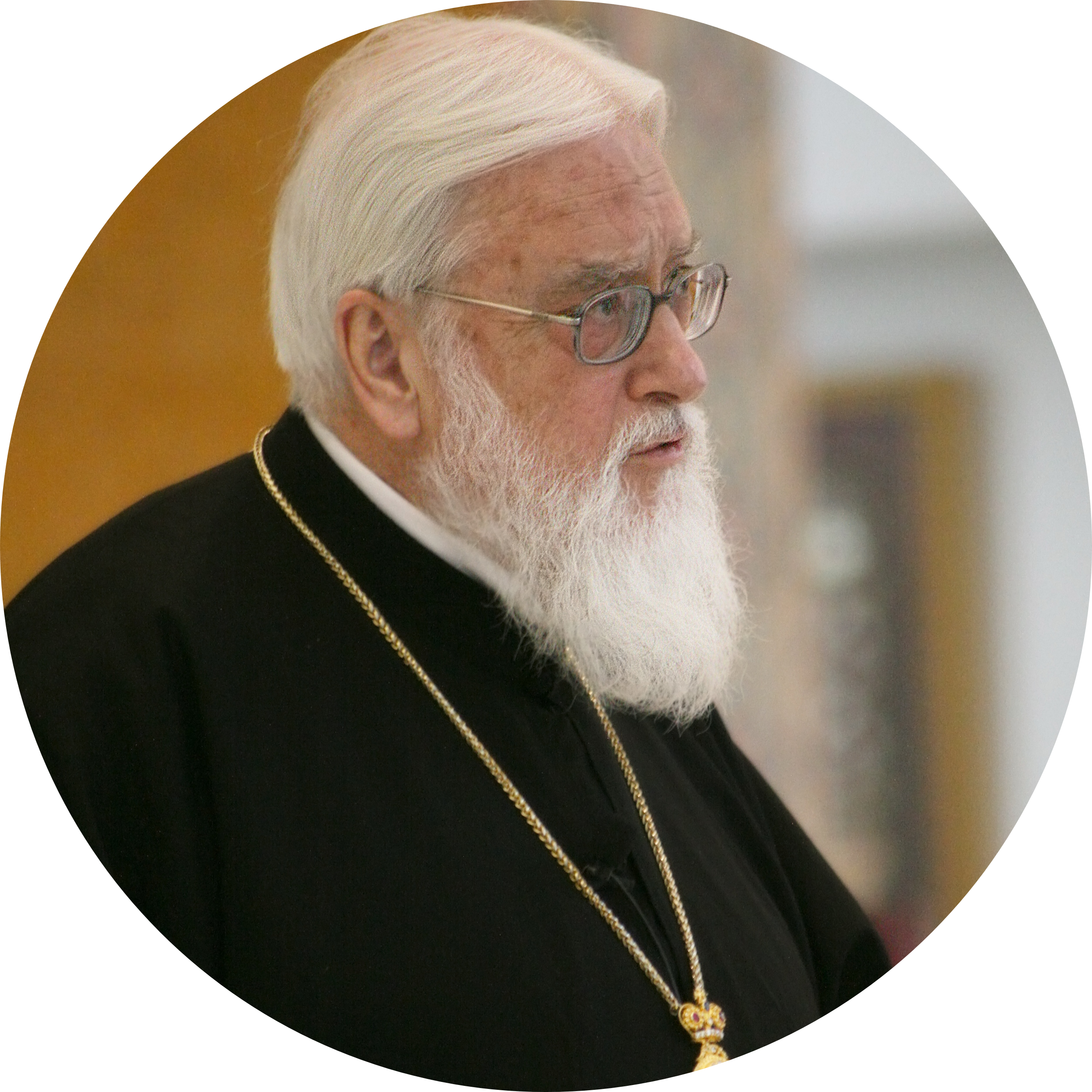Pentecost: The Outpouring of the Holy Spirit
by Metropolitan Kallistos (Ware) of Diokleia
an excerpt from his book, The Orthodox Way

The whole aim of the Christian life is to be a Spirit-bearer, to live in the Spirit of God, to breathe the Spirit of God. “Where two or three are gathered together in my name, there am I in the midst of them” (Matthew 18:20). How is Christ present in our midst? Through the Holy Spirit! “Lo, I am with you always, even to the end of the world” (Matthew 28:20). How is Christ always with us? Through the Holy Spirit! Because of the Comforter’s presence in our heart, we do not simply know Christ at fourth or fifth hand, as a distant figure from long ago, about whom we possess factual information through written records; but we know him directly, here and now, in the present, as our personal Savior and our friend. With the Apostle Thomas we can affirm, “My Lord and my God (John 20:28). We do not merely say “Christ was born” – once, very long ago; we say “Christ is born” – now, at this moment, in my own heart. We do not say merely “Christ died” but “Christ died for me.” We do not say merely “Christ rose” but “Christ is risen” – he lives now, for me and in me. This immediacy and personal directness in our relationship with Jesus is precisely the work of the Spirit. The Holy Spirit, then, does not speak to us about himself, but he speaks to us about Christ. “When the Spirit of Truth is come,” says Jesus at the Last Supper, “he will guide you into all the truth; for he will not speak about himself…..he will take what is mine and show it to you’ (John 16:13-14). The Holy Spirit points, not to himself, but to the risen Christ.
Pentecost
About the gift of the Holy Spirit on the day of Pentecost, three things are particularly striking: first, it is a gift to all God’s people. “They were all filled with the Holy Spirit” (Acts 2:4). The gift or charisma of the Holy Spirit is not conferred only upon bishops and clergy but upon each of the baptized. All are Spirit-bearers, all are – in the proper sense of the word – “charismatics.” Secondly, it is the gift of unity. “They were all with one accord in one place” (Acts 2:1). The Holy Spirit makes the many to be one Body in Christ. The Spirit’s descent at Pentecost reverses the effect of the tower of Babel (Genesis 11:7). The Spirit brings unity and mutual comprehension, enabling us to speak with “one voice.” Of the first Christian community at Jerusalem, in the period immediately following Pentecost, it is stated that they “had all things in common” and were “united in heart and soul” (Acts 2:44 and 4:32); and this should be the mark of the Pentecostal community of the Church in every age. Thirdly, the gift of the Spirit is a gift of diversity: the tongues of fire are “divided” (Acts 2:3) and they are distributed to each one directly. Not only does the Holy Spirit make us all one, but he makes us each different. At Pentecost, the multitude of different tongues was not abolished, but it ceased to be a cause of separation; each spoke as before, in his own language, but by the power of the Spirit each could understand the others. For me to be a Spirit-bearer is to realize all the different characteristics in my personality; it is to become truly free, truly myself in my uniqueness.
“The fruit of the Spirit is love, joy, peace, long-suffering, gentleness…” (Galatians 5:22). The conscious awareness of the Spirit’s action should be something that permeates the whole of our inward life. It is not necessary for everyone to undergo a striking “conversion experience.” Still less is it necessary for everyone to “speak in tongues.” Most contemporary Orthodox Christians view with deep reserve that part of the “Pentecostal Movement” which treats “tongues” as the decisive and indispensable proof that someone is truly a Spirit-bearer. Discernment is necessary in the case of “tongues.” Often it is not the Spirit of God that is speaking through the tongues, but the all-too-human spirit of auto-suggestion and mass hysteria. “Beloved, trust not every spirit, but test the spirits to see whether they are from God” (1 John 4:1). In any event, St. Paul insists that this is one of the least important of the spiritual gifts (see 1 Corinthians 14:5).
Orthodoxy, therefore, while insisting upon the need for a conscious, direct experience of the Holy Spirit, insists also upon the need for discernment and sobriety. Our participation in the gifts of the Spirit needs to be purged of all that is merely fantasy, delusion and emotional excitement. Gifts that are genuinely spiritual are never to be rejected, but we should never pursue such gifts as an end in themselves. Our aim in the life of prayer is not to gain “sensible” feelings or experiences of any kind, but simply and solely to conform our will to God’s. “I seek not what is yours, but you,” says St. Paul to the Corinthians (2 Corinthians 12:14); and we say the same to God. We seek not the gifts but the Giver!

